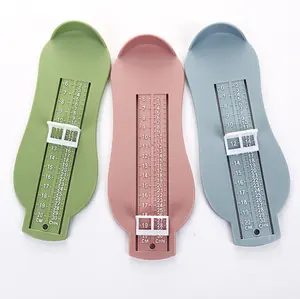Popular in your industry





















































































































































































































Top categories
About japanese blinds
What are Traditional Japanese Blinds
Traditional Japanese blinds, known for their distinctive and elegant design, are a popular choice for both residential and commercial spaces. These window coverings are crafted using natural materials such as bamboo, reeds, or soft woods, which not only add a touch of nature but also contribute to a soothing and Zen-like aesthetic. They are sought after for their functionality in providing privacy, controlling light, and enhancing the ambiance of a room.
The principles on how traditional Japanese blinds work are rooted in traditional Japanese design and craftsmanship. They typically consist of a series of horizontal slats, often connected by a piece of fabric, which can be raised or lowered to let light in or keep it out. This simple yet effective mechanism allows for precise control over the amount of light and privacy at any given time. The blinds are often made to be lightweight and easy to maneuver, with options for various installation types such as built-in, side installation, or exterior installation, depending on the user's requirements.
Traditional Japanese blinds are ideal for those who appreciate minimalist design and wish to incorporate elements of nature into their decor. They are particularly popular in settings such as homes with modern or traditional Japanese architecture, offices with a focus on simplicity and efficiency, and hospitality venues seeking to create a serene and inviting atmosphere. With their versatility and timeless appeal, these blinds serve as a practical solution for many spaces seeking both functionality and aesthetic charm.
Types of Traditional Japanese Blinds
Traditional Japanese blinds encompass a variety of types, each with its own characteristics and common use cases:
-
Roller Blind: This type is perhaps the most prevalent in traditional Japanese blinds. It features a straightforward design with a spring mechanism that allows for easy rolling and unrolling. Roller blinds are commonly used in residential and commercial spaces for their simplicity and effectiveness.
-
Vertical Blind: Characterized by slats that hang down from a headrail, vertical blinds are typically utilized in larger spaces and are excellent for controlling light levels. They work well for wide windows or doors and are often seen in office environments.
-
Bamboo Blind: These blinds are made from natural bamboo or wood and provide an organic and eco-friendly option. They are frequently chosen for their rustic charm and ability to filter light gently into a room, creating a soothing atmosphere.
-
Honeycomb Blind: Comprising of cells that resemble honeycombs, these blinds are designed to trap air and provide excellent insulation properties. They're ideal for reducing energy costs and maintaining a comfortable environment in homes and offices.
-
Roman Shade: Offering a softer look, Roman shades fold up neatly when raised, providing an elegant solution for light control that is often favored in residential settings.
How to choose Traditional Japanese Blinds
Selecting the right traditional Japanese blind involves considering several factors to ensure it meets both aesthetic requirements and functional needs. For businesses looking into these blinds on Alibaba.com, it's crucial to consider the design style that aligns with the intended ambiance—be it contemporary, classic, or traditional. The material choice is also significant; natural bamboo provides an authentic look suited for eco-friendly spaces, while durable materials like aluminum alloy may be more appropriate for high-traffic commercial areas due to their longevity.
Another key consideration is the installation type that suits your space best. For example, if you're looking to maintain a consistent interior appearance in a hotel setting, built-in or ceiling installation types could be preferable over other options. Additionally, the opening and closing method should align with your specific needs—whether you require easily adjustable open and close systems for varying light levels or seek a specific visual effect.
Lastly, the sheet size should be compatible with your windows' dimensions to avoid any unnecessary gaps or overlaps. It's also important to factor in the applicable window type—French windows may require different blind styles compared to narrow sash or wide blade windows.
Businesses should also consider their commercial buyers' profiles when selecting traditional Japanese blinds—understanding where and how they will be used can dictate which type is most suitable for their clientele's needs.
About Traditional Japanese Blinds on Alibaba.com
Alibaba.com stands out as an eminent marketplace that connects businesses with a vast array of traditional Japanese blind options suitable for any discerning customer. With an extensive selection from numerous suppliers worldwide, Alibaba.com facilitates finding just the right style—be it classic Roman shades or minimalist Shoji screens—for any interior space or architectural application.
The platform's commitment to ease of use is evident through features like mobile buying compatibility and multilingual communication support, ensuring that purchasing decisions can be made swiftly and conveniently. Moreover, Alibaba.com's Trade Assurance service offers a layer of protection that bolsters buyer confidence by safeguarding payments until order fulfillment is confirmed.
By sourcing from Alibaba.com, businesses not only gain access to high-quality traditional Japanese blinds but also benefit from the platform's comprehensive product listings that cater to various design styles and functional requirements. Whether outfitting a quaint cafe with charming café curtains or providing robust outdoor shading solutions for large-scale operations, Alibaba.com is an invaluable resource that streamlines the procurement process while upholding quality standards and reliability.
Common FAQs for Traditional Japanese Blinds
What are the benefits of choosing Traditional Japanese Blinds over contemporary options?
Traditional Japanese Blinds provide a unique cultural aesthetic that can complement both traditional and modern interior styles. They offer versatility in light control and can be customized to suit various room spaces and design requirements.
How do I determine the right size of Traditional Japanese Blinds for my project?
Measure the window or door space where the blinds will be installed. Traditional Japanese Blinds come in various dimensions, and it's important to choose a size that fits the window or door accurately to ensure full coverage and functionality.
Can Traditional Japanese Blinds be installed in commercial settings?
Yes, Traditional Japanese Blinds are suitable for commercial use and can be installed in various settings such as restaurants, cafes, hotels, and retail stores. Custom sizing options are available to fit unique window or door dimensions.
What materials are Traditional Japanese Blinds typically made from?
Traditional Japanese Blinds are crafted from a variety of materials including natural bamboo, wood, cotton, silk, and sometimes metal or paper. The choice of material often depends on the desired look, function, and durability required.
Are there eco-friendly options available among Traditional Japanese Blinds?
Yes, Traditional Japanese Blinds made from natural materials like bamboo or cotton are eco-friendly and sustainable. These options are also known for their breathability and can contribute to a healthier indoor environment.
How do I maintain and clean Traditional Japanese Blinds?
Maintenance and cleaning depend on the material of the blinds. Natural materials may require occasional dusting or wiping with a damp cloth, while others might be machine washable.
What is the average lifespan of Traditional Japanese Blinds?
The lifespan of Traditional Japanese Blinds varies depending on material quality and care. High-quality blinds can last several years with proper maintenance, while those made from natural materials like bamboo may have a longer lifespan.
Can Traditional Japanese Blinds be used for both indoor and outdoor purposes?
Certain types of Traditional Japanese Blinds are designed for either indoor or outdoor use. However, the material and construction should be suited to the intended environment to ensure longevity and performance.
Are there any design features that I should consider when selecting Traditional Japanese Blinds for my business?
Consider design features such as color, pattern (like floral or geometric), style (like roller or Roman shade), technics (plain or printed), and additional features (such as eco-friendliness or filtration properties) that align with your business's needs.
How does installation type affect my choice of Traditional Japanese Blind?
Installation type can impact ease of use, appearance (as in the case of built-in or side installation), and suitability for specific window or door spaces. Ensure that your chosen type aligns with your installation requirements.
Is it possible to get custom-sized Traditional Japanese Blinds for my project?
Yes, many suppliers offer custom sizing for Traditional Japanese Blinds to fit specific window or door dimensions. Customization allows for a perfect fit and is particularly useful in design projects where standard sizes may not be suitable.
What should I consider when choosing between roller blinds and Roman shades for my project?
Roller blinds offer a crisp, clean look with easy operation and installation. Roman shades provide a softer appearance with more fabric folds and are better suited for creating a cozy, traditional atmosphere.
Are there ready-made options for Traditional Japanese Blinds on Alibaba.com?
While Alibaba.com primarily connects buyers with suppliers, some suppliers may offer ready-made Traditional Japanese Blinds that can be purchased and installed with minimal effort.














































